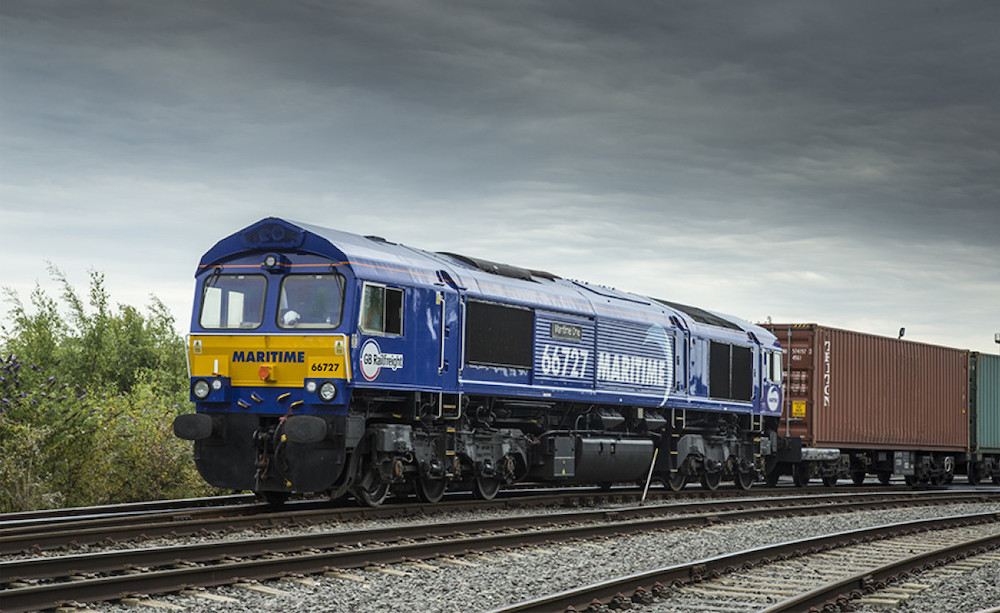
CCEP, the largest independent bottler of Coca-Cola globally, is making the switch from road to rail to distribute its soft drinks between its manufacturing sites and third-party warehouse locations across London and Yorkshire.
When running at full capacity, the change will see up to 18,000 loads of CCEP’s products – some 2.5million cans and bottles of some of the world’s most popular soft drinks – delivered by rail per day, reducing carbon emissions by nearly 50% compared to previous road operations.
The move represents a further step towards the business’ target of reducing carbon emissions across its value chain by 30% by 2030 and its overall ambition of reaching net zero by 2040.
The bottler has made the transition in partnership with integrated road and rail solutions provider Maritime Transport Ltd and GB Railfreight. It represents Maritime’s first Domestic Distribution intermodal service, which will see the movement of 34’ x 45’ heavily modified containers by rail six days per week, with Maritime’s distribution fleet making final mile deliveries to CCEP’s sites.
The switch will save a total of almost 4 million road miles per year and remove a total of 15,000 lorry journeys from some of the UK’s busiest roads. When running at full capacity 31% of CCEP’s total product volume destined for Yorkshire will now be distributed via rail.
The first-ever rail collaboration between the businesses expands Maritime and CCEP’s existing partnership, through which Maritime has provided the bottler with distribution services since 2017.
Francisco Javier Sanchez Gandarias, Vice President Customer Service and Supply Chain, Coca-Cola Europacific Partners Great Britain: “As a business, we know that to reduce our overall carbon emissions, we need to work with our supply chain partners to continue making meaningful strides towards our business goals. The transition from road to rail forms an important part of our This is Forward sustainability strategy and our overall roadmap to net zero, and means we can continue to meet demand for our soft drinks in a way that is more beneficial to the environment.’
Alex Williams, Managing Director - Distribution, Maritime Transport, said: “The launch of this dedicated service in partnership with CCEP underlines the flexibility and breadth of our business’ capabilities. Converting domestic cargo from road to rail is a key strategic development for us in our ambitions to reduce emissions and offer greater resource to our customers.
“Our advancements in the distribution and rail freight sectors have enabled us to provide a truly networked, end-to-end logistical product to our customers, whilst our commitment to developing innovative solutions that allow more freight to be moved by rail is a great fit for CCEP, and means we are well-positioned to support their journey towards a net-zero future.
“This is a really exciting next phase in our evolution, and our partnership with a valued customer. This important forward-focused initiative will further enhance Maritime’s logistics links whilst at the same time making them more resilient by significantly reducing the strain on both road networks and HGV driver retention by cutting road miles.’
Julie Garn, General Manager, GB Railfreight, said: “We are delighted Maritime has approached us to run its very first Domestic Distribution intermodal service between Wakefield Europort and the Port of Tilbury’s London Container Terminal, a testament to the successful partnership we have forged over many years.
“This service is a great fit for all parties involved; GB Railfreight shares the same commitment as Maritime and CCEP to combatting climate change through a more sustainable supply chain. Rail freight and innovations like Maritime’s latest service are key to achieving this and we will continue our work in taking steps to reduce CO2 emissions.”